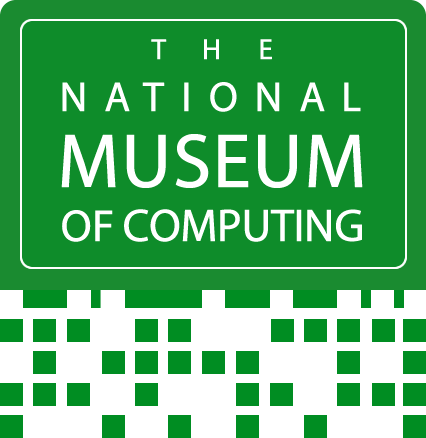The National Museum of Computing takes visitors back 200 years to celebrate Charles Babbage - the first computer pioneer
/The National Museum of Computing, Bletchley, 10 November 2022 – The National Museum of Computing (TNMOC) is celebrating the 200th anniversary of Charles Babbage’s announcement of the invention of the Difference Engine with a new pop-up exhibition* titled: Charles Babbage – who do YOU think he is? The exhibition opens on Saturday 26 November. After the official opening, there will be a talk by Doron Swade, a leading authority on Babbage, who masterminded the construction of Difference Engine No. 2, the first Babbage engine to be built.
Difference Engine No. 1 was the first complete design for an automatic computing machine. At the time mathematical tables were used widely for navigation, science, mathematics, and many trades. But tables were thought by some to be riddled with errors. Babbage conceived of the Engine to automatically calculate and print tables and so eliminate risk of mistakes. He was led from this to a fully-fledged programmable general-purpose digital computer – the Analytical Engine.
Babbage failed to build a complete Engine. The first Babbage Engine to be built is Difference Engine No. 2, designed between 1847-9 and completed at the Science Museum in 2002. This year marks its 20th anniversary. The Engine weighs 5,000kg contains 8,000 mechanical parts and works exactly as Babbage intended. The project took seventeen years.
The afternoon presentation will describe the controversies, rivalries and challenges that faced the first computer pioneer in his attempts to mechanise calculation and how he was led from this to general-purpose computing. It will describe the Analytical Engine and the widely discussed collaboration with Ada Lovelace. It will offer correctives to received perceptions of Babbage’s motives, his influence on modern computing, Lovelace’s role, and why Babbage himself failed to construct an engine.
TNMOC’s exhibition - Charles Babbage – who do YOU think he is? - will invite visitors to put their knowledge of Babbage to the test through a series of displays and a quiz about different aspects of the inventor, his work and his legacy. It will be open from 26th November until 1st January.
Jacqui Garrad, Museum Director, said: “We are excited to celebrate Charles Babbage’s visionary work at the museum. Doron’s talk will allow the audience to see this pivotal piece of computing history in a new light. I would encourage anyone interested in understanding the story of Charles Babbage and his Engines to visit the exhibition and attend the talk.”
Doron Swade said: “There are many misconceptions about Babbage, his motivation for the engines, and the reasons for his failure to build them. This event offers an opportunity and a platform to reveal new findings and new perspectives. Be ready to be surprised’.
Exhibition Opening Event Schedule on 26th November
10:30-12:50: Attendees to arrive at the Museum, exploring the galleries and enjoy refreshments and networking.
13:00-14:00: Exhibition officially opens, attendees to explore the exhibition.
14:15-15:15: Myths and misconceptions of Charles Babbage - lecture by Doron Swade followed by Q&A.
15:15-17:00: Official event ends - attendees invited to explore the Museum.
You can find out more and purchase tickets for the event on Eventbrite: https://www.eventbrite.co.uk/e/charles-babbage-who-do-you-think-he-is-tickets-407287978307
*The National Museum of Computing’s pop-up exhibitions have recently featured the 100th anniversary of the BBC and the 10th anniversary of the Raspberry Pi.
About The National Museum of Computing
Located on Bletchley Park as an independent museum, The National Museum of Computing (TNMOC) brings to life the history and ongoing development of computing for the inspiration and enjoyment of both the general public and computing enthusiasts.
TNMOC acquires, conserves, restores, and rebuilds historic computing machinery and related artefacts. The museum displays and interprets its exhibits to tell the history of modern computing, with a particular emphasis on British contributions. Many of the exhibits are maintained in working condition and regularly demonstrated, including the Turing-Welchman Bombe and Colossus code-breaking machines from WWII, the Harwell Dekatron Computer, the world’s oldest still working original computer dating from 1951, mainframe computers and minicomputers from the 1960s, 70s and 80s, through home and personal computers of the 90s, to modern tablet computers and smartphones.
The museum runs a highly successful Sandford Awarded learning programme for schools and colleges that introduces computing technology and coding to young people to help inspire the next generation of computer scientists and engineers. It also runs a popular ongoing programme of hands-on activities during school holidays and offers lectures and interactive events, both on-site and via remote Internet access.



